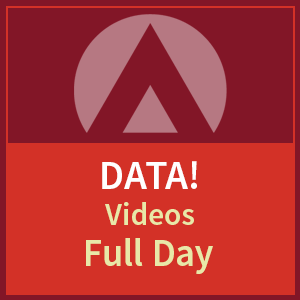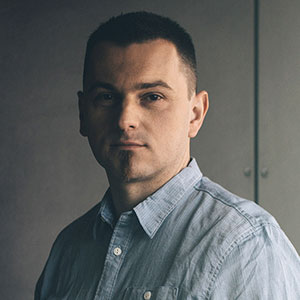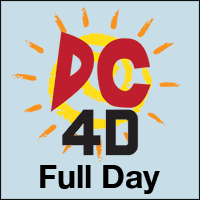
$150.00
Purchase all five videos from DC4D: Data!
Data is more valuable than oil. Data is the lifeblood of
more and more companies every day.
In every enterprise, data comes from multiple inputs and must be harnessed and combined to become actionable. If you don’t tame and act on your data streams, you lose value as it flows through your systems and you miss opportunities. The decisions for dealing with your data go beyond how you store, search, and share it with others throughout your organization.
Join us online for the next Day Camp 4 Developers and learn to tame your data. Turn it from a wandering stream to a powerful tool that can inform your enterprise.
Description

DATABASE THEORY AND MODELING:
A CRASH COURSE
Speaker: Elizabeth Smith
Wouldn’t it be great if everyone had a DBA to design and manage data for you? Most places don’t have this luxury, instead the burden falls on the developer. Your application is awesome, people are using it everywhere. But is your data storage designed to scale to millions of users in a way that’s economical and efficient? Data modeling and theory is the process of taking your application and designing how to store and process your data in a way that won’t melt down. This talk will walk through proper data modeling, choosing a data storage type, choosing database software, and architecting data relationships in your system. We’ll also walk through “refactoring data” using normalization and optimization.

TAMING YOUR DATA WITH ELASTICSEARCH
Speaker: Derek Binkley
Are you searching unstructured data or text fields? Do you need to aggregate and summarize your geo, financial, or other numeric data? Do you want to query your structured data in new and exciting ways? If so, Elasticsearch may be right for you. Let’s explore the many ways you can ask questions about your data and have it make sense to you and your users. We’ll sort through millions of rows in milliseconds and give you tools to take your data analysis to the next level. You will learn how to use PHP libraries and basic RESTful API calls to store, search, and aggregate your data.

DESIGNING AND IMPLEMENTING GraphQL API
Speaker: Mariusz Gil
REST architectural style, originally communicated by Roy Fielding 20 years ago, is well known in IT industry. Six constraints of REST style are the base of many of modern APIs, making things a lot of easier to implement and use. But there are plenty of cases where this concept introduces extra complexity or issues, where communication ping-pong between client and server is only one of them.
GraphQL is a concept of data query and manipulation language with corresponding runtime engine to fulfill queries with data stored in the application. GraphQL introduces a new approach of designing efficient communication, but also some challenges related with data processing or caching.
What you can expect from this talk? Some core knowledge about GraphQL concepts and archetypes, of course. But we are going to focus more on practical use-cases for GraphQL, from designing small APIs to implementing GraphQL-powered API Gateways on top of microservices architecture. You can expect examples in different languages/libraries and dedicated software to run GraphQL solution to see all possibilities you can use in your next project.

DRIVING INNOVATION WITH MySQL 8.0 AND DOCKER
Speaker: Kathy Forte
You as a MySQL architect are wondering about how you might make use of running MySQL in a container. You are also aware that the MySQL team at Oracle has recently released a new version of MySQL 8.0 with many advantages for both developers and DBAs.
I will illustrate 8.0 features with a real-time demo of MySQL 8.0 within a Docker container and why you’ll want to incorporate both into your DevOps environment. This demo highlights why a container is perfect for testing MySQL, how to set up your MySQL 8.0 container, and outlines which features within MySQL 8.0 are perfect for containers.

SO YOUR BOSS SAYS YOU NEED TO LEARN DATA SCIENCE
Speaker: Susan Ibach
Data science has become one of *those* buzzwords. It seems like everyone is talking about how they need to build their data science skills and do more data science. But what does that actually mean? What’s the difference between data science and artificial intelligence? When does data become big data? Do the skills I have now translate to the world of data science? Join this session to learn the language and the concepts of data science so you can figure out when to use it and where to get started.




